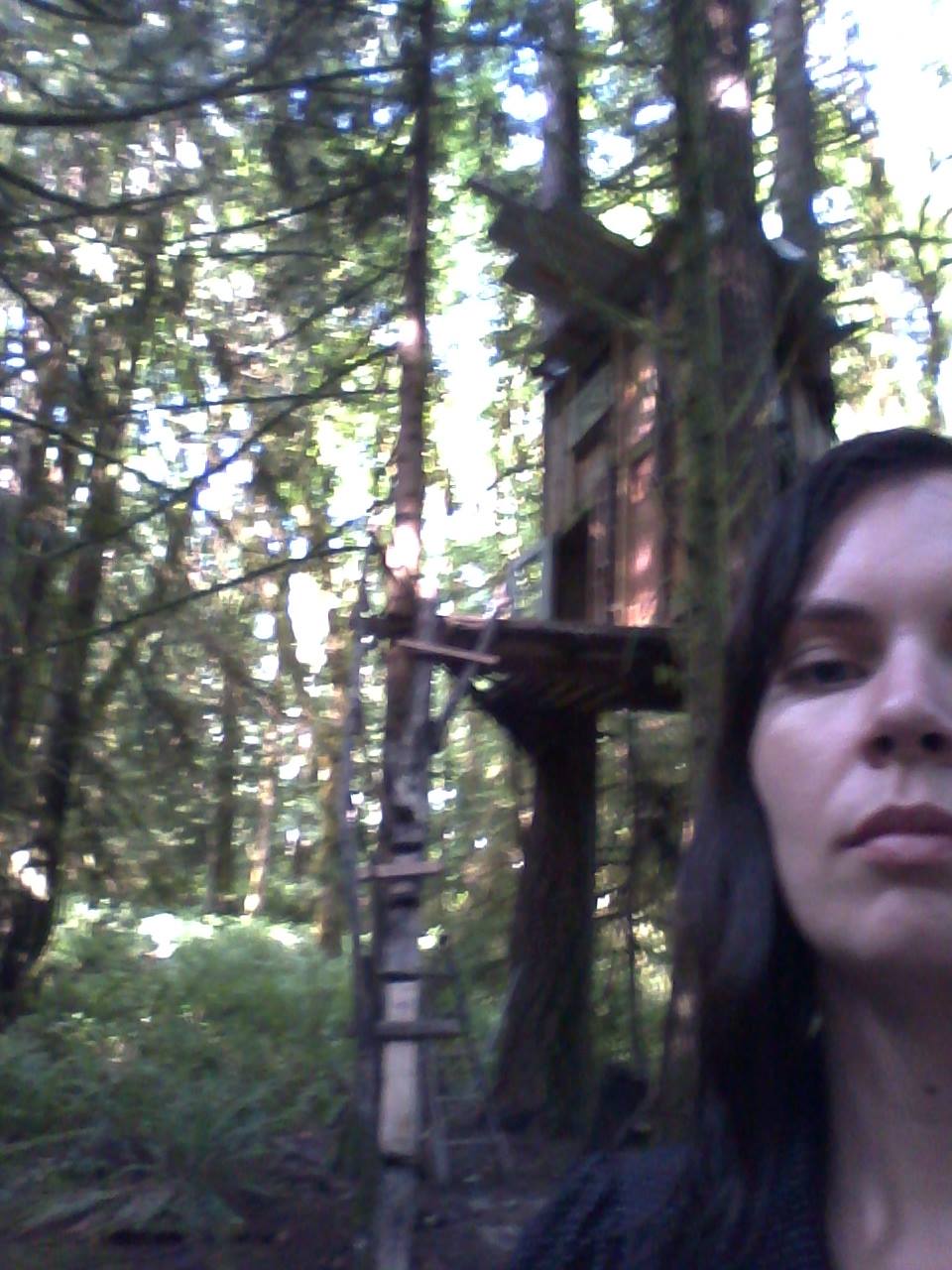
Lisa Jarrett, 31, works in a bakery in Washington. This is her story.
Depression is like being in a tunnel. You see no light. You're trying to figure out a way out of it, but over time you stop thinking you'll ever see sunlight. Depression is something that has obviously been fatal for many people recently in the news. You see some talk of preventive measures, but not enough. I believe everything happens for a reason. I didn't have many happy stories when I was going through my battle. I hope I can be able to assist other people.
I have borderline personality disorder. It's emotional irregularity; there are highs and lows but no real in-between, and it affects my entire life. You're not able to deal with things that go on in the regular world because you don't know how. My mom was never diagnosed with any mental illness, but she has her own problems, and things between us were not always the most pleasant.
I was on up to eight different medications at one time. I've done talk therapy. I found that professionals can help, of course, but unless they've suffered mental illness themselves, sometimes you feel like that person just doesn't understand. My doctor didn't always know what to do with me; there is no cure for borderline personality disorder.
I moved to Washington state in 2005 with my then-fiancé. By 2010, my relationship was breaking down. In 2011, after I left him, I lost my insurance and could no longer afford my medications. I basically spent the next few months in bed, withdrawing from eight different medications. I was very depressed. Honestly, I wanted to die. I didn't like myself, I didn't like other people, everything was just negative. Near the school I went to, there are tree houses in the middle of the woods. I took a sheet off my bed, made a noose out of it and went to one of the tree houses. I had been on all these medications for years, some of them highly addictive, and I didn't know what my future was going to be. I was just done. There I was with the noose around my neck. I almost climbed the ladder and jumped off, but something stopped me. I called my ex-fiancé's sister and she told me to go to the hospital. By the time I got there, I had clicked out of whatever mode I was in.

"I took this picture in August 2014 at the place I almost committed suicide in Olympia, Washington."
There are two decisions on that path. I was still lost for a while, but I chose to still be here. I ended up moving to Milwaukee and started drinking like crazy. A lot of people with mental illness turn to drugs or alcohol. All they want to do is feel good. After being in Milwaukee about five months, I moved back in with my parents. I was getting drunk six out of seven nights of the week. I was so depressed, and it felt like the only thing that could possibly bring me happiness.
I met a friend online, and I started to see things differently with this good friend by my side. He suggested applying to jobs to get me out of the house and to get a little money. We're no longer friends -- I was a drunk asshole, and how much of that type of behavior can you take? -- but he became my inspiration. I started to do a 12-step program, and now, I haven't had a drink in almost a year.
I had also started losing weight [Lisa shared her weight loss story with HuffPost in August here], which helped. I don't smoke anymore, I don't drink anymore, I'm going to the gym; it was a platform to be able to build off of. I'm not suicidal anymore, and I rarely get depressed. People who know me tell me I've changed. I'm able to experience life as it exists, instead of on other people's terms.
I don't take any medication now. I'm very big about dialectical behavior therapy(DBT). If I'm worried about something I can't control, it puts me in the place where I can say I can do something about this and focus my energy and figure things out, instead of irrational thoughts and acting on impulse. Between DBT and the 12 steps, I've realized I don't have to react to something right away. I can step back, chill out and get back to this later, which relieves stress so that I don't become depressed.
Just like not everyone has to get married and have kids and a great house and a great job to lead a successful life, people with mental illness are just having different personal experiences, and that's OK. When people tell me to just cheer up, I'd love to, I really want to, but they need to have sympathy and understanding.
I want to start a conversation about what causes someone to go through with suicide. It's out of desperation, when you've lost hope. If you're stuck in a world of depression, how long are you going to be able to take that? I wish the public would understand. People want to hear [stories like mine] because it gives them hope -- and it could, possibly, save someone's life.

Lisa, today
As told to Sarah Klein. This interview has been edited for clarity and length.
Have a story about depression that you'd like to share? Email strongertogether@huffingtonpost.com, or give us a call at (860) 348-3376, and you can record your story in your own words. Please be sure to include your name and phone number.
Need help? In the U.S., call 1-800-273-8255 for the National Suicide Prevention Lifeline.